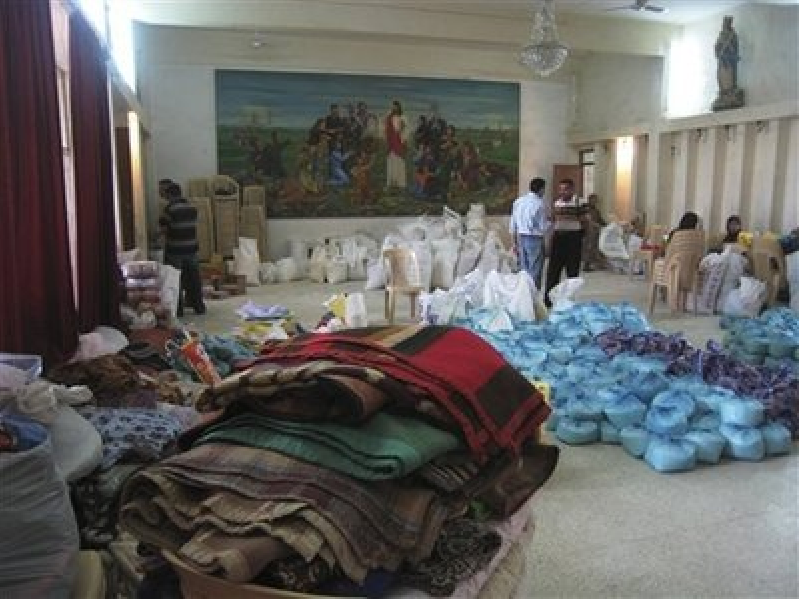
BAGHDAD (AP) – The U.N. refugee agency said Friday that it was rushing aid to thousands of Christians who fled a northern Iraqi city, while a prominent Shiite cleric appealed for unity as lawmakers consider a U.S.-Iraq security deal.
Some 13,000 Christians have been chased away by threats and extremist attacks in Mosul this month, said Ron Redmond, spokesman for the U.N. High Commissioner for Refugees.
That number is over half the community in a city where Christians have lived since the early days of the religion.
"Many left with little money and need help," Redmond told reporters in Geneva, where the agency is headquartered.
He recounted the story of a Christian nurse who told his agency the threats started months ago with phone calls, letters and messages left on doors.
Another woman said she fled when she heard of a Christian that was murdered.
"We were the hard core that never wanted to leave Iraq, even with the tense environment," the woman, who fled to Syria, was quoted by the agency as saying.
The agency has delivered relief supplies to over 1,700 Christian families now displaced in the north of the country, Redmond said. Most are living in churches, monasteries and the homes of relatives in nearby Christian villages and towns.
No group has claimed responsibility but Sunni extremists are believed to be behind the campaign, which is taking place despite U.S.-Iraqi operations aimed at routing insurgents from remaining strongholds north of the capital.
Attacks against Christians and other minorities had tapered off amid a drastic decline in overall violence nationwide, before picking up again this month.
In Baghdad, meanwhile, a hardline Shiite cleric and lawmaker called for rational debate on a draft U.S.-Iraqi security pact that would give the United States a legal basis for keeping its forces in Iraq for three more years.
Jalaluddin al-Saghir told worshippers that the government was still tinkering with the deal, which would also grant Iraq limited authority to try U.S. soldiers and contractors charged with serious crimes.
"The country is passing through a most critical stage," al-Saghir said. "The politicians should think about Iraq's interests. They should not seek to break the unity of Iraqi society."
Critics say the deal is an infringement on national sovereignty.
Al-Saghir's statements carry weight because he is a senior figure in the Supreme Islamic Iraqi Council, which dominates the government with Prime Minister Nouri al-Maliki's party. The council has called for changes to the deal.
There was however a different message in mosques frequented by anti-U.S. Shiite leader Muqtada al-Sadr's supporters.
Sheik Abdul-Hadi al-Mohammadawi, an aide to the Iran-based al-Sadr, praised the tens of thousands who marched through Baghdad last week calling for an end to the American presence in Iraq.
In a sermon at Kufa mosque, he said the proposed deal had numerous problems. "There is no balance in this pact because it is between a great state and a small one," al-Mohammadawi said.
The head of the Sadrist political commission, meanwhile, told a news conference in the Shiite holy city of Najaf his movement's criticism of the deal was not driven by Iran, as some have suggested.
Iran, which is also close to the Shiite parties who dominate Iraq's government, has repeatedly expressed its opposition to any deal allowing American forces to remain in Iraq.
"We have real and serious fears that the occupier seeks to divide Iraq," Lewa Smeism said, adding that there was opposition across the Iraqi political spectrum.
Senior U.S. defense officials have said the U.S. is still focusing its efforts on getting the agreement signed, even though its acceptance by Iraq's parliament is far from certain.
Washington prefers the new deal over an extension of the existing U.N. mandate that gives U.S. and coalition troops the authority to be in Iraq through the end of the year.
Copyright 2008 Associated Press. All rights reserved. This material may not be published, broadcast, rewritten, or redistributed.






